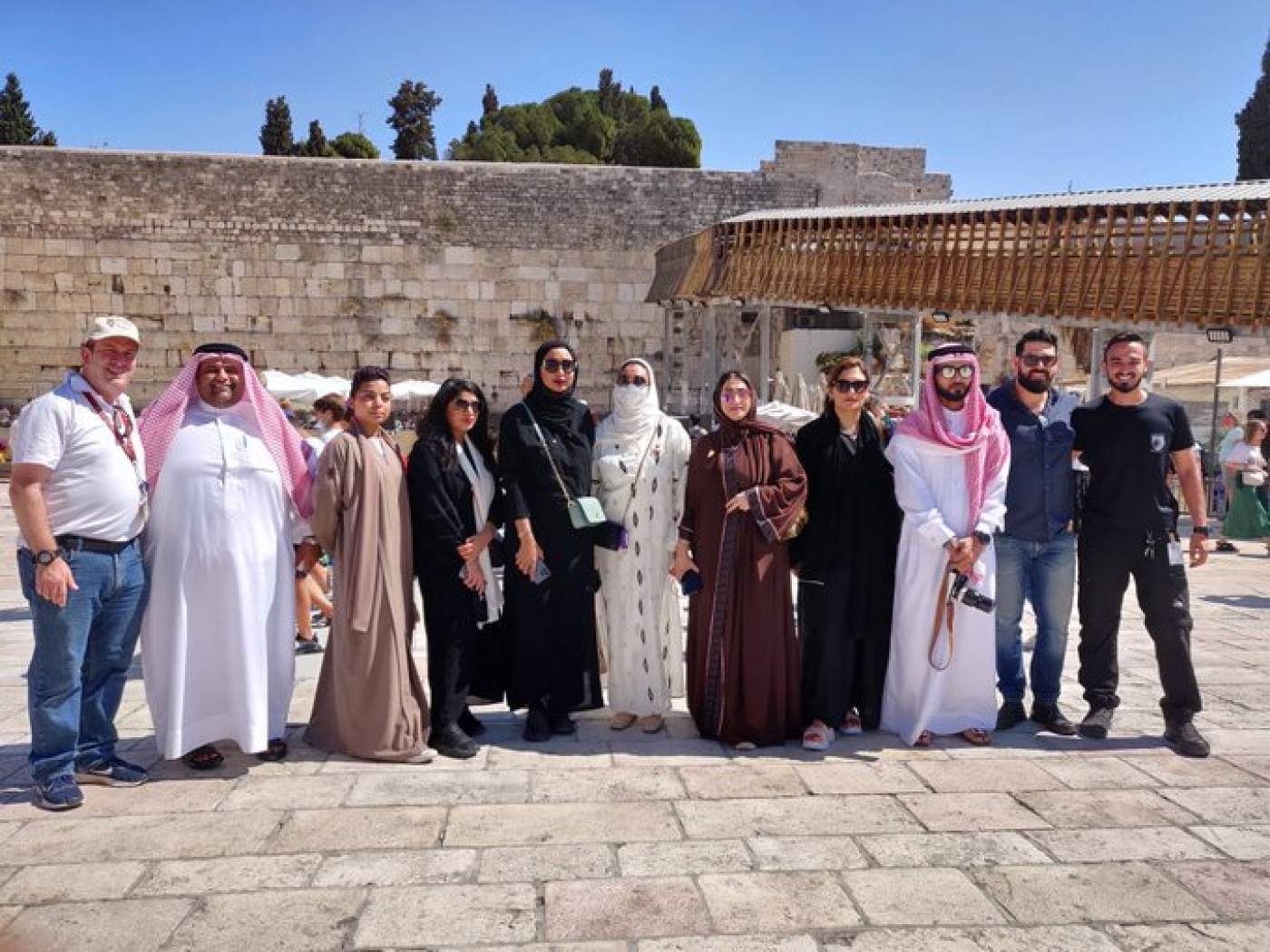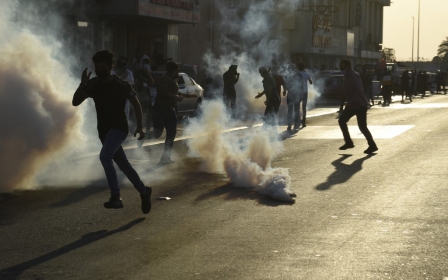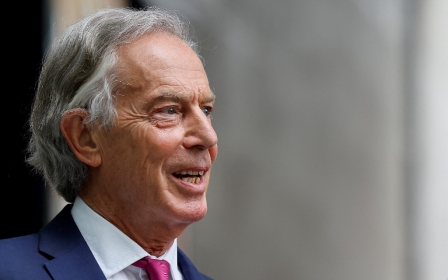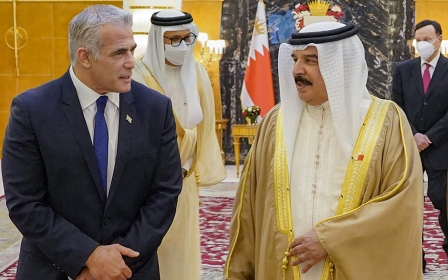Occupied East Jerusalem: Bahraini group tours Western Wall Plaza with Israelis

A Bahraini delegation visiting Israel on Wednesday toured the Western Wall Plaza, a sacred site in Judaism adjacent to the al-Aqsa Mosque complex in occupied East Jerusalem.
Video footage and photos showing Israelis accompanying the Bahraini group - wearing the traditional Khaliji thobe and ghutra - circulated on Palestinian social media.
Bahrain and the UAE normalised relations with Israel last September, during the final months of the Trump administration. Morocco and Sudan followed suit not long after.
In August, Khaled Yousif al-Jalahma, Bahrain's first ambassador to Israel, arrived in Tel Aviv to take up his post.
Bahraini groups had visited and toured Israel prior to the signing of the normalisation deal. In 2017, a Bahraini interfaith group visited the country, hoping to "send a message of peace".
Last week, Israel's Foreign Minister Yair Lapid visited Manama and met Bahrain's king, and the crown prince and prime minister, Salman bin Hamad Al Khalifa, before cutting the ribbon at the Israeli embassy.
Lapid has also toured the Bahrain base of the US Navy's Fifth Fleet, which has faced off with Iranian vessels in recent years.
Following Bahrain's inauguration of its embassy in August, Israel's foreign ministry released a statement saying that it "marked an important step in developing the bilateral relations between the two countries and their peoples".
In June, Lapid inaugurated his country's embassy in Abu Dhabi, followed in July by the UAE opening its mission in Tel Aviv's new stock exchange building.
Both the Palestinian Authority and Hamas, which governs the Gaza Strip, have condemned the normalisation deals as a "stab in the back" of Palestinians.
In 1993, the Palestinian Liberation Organisation signed a peace deal with Israel, known as the Oslo Accords, in a bid to build a Palestinian state in the occupied West Bank, East Jerusalem, and Gaza Strip.
Middle East Eye propose une couverture et une analyse indépendantes et incomparables du Moyen-Orient, de l’Afrique du Nord et d’autres régions du monde. Pour en savoir plus sur la reprise de ce contenu et les frais qui s’appliquent, veuillez remplir ce formulaire [en anglais]. Pour en savoir plus sur MEE, cliquez ici [en anglais].




